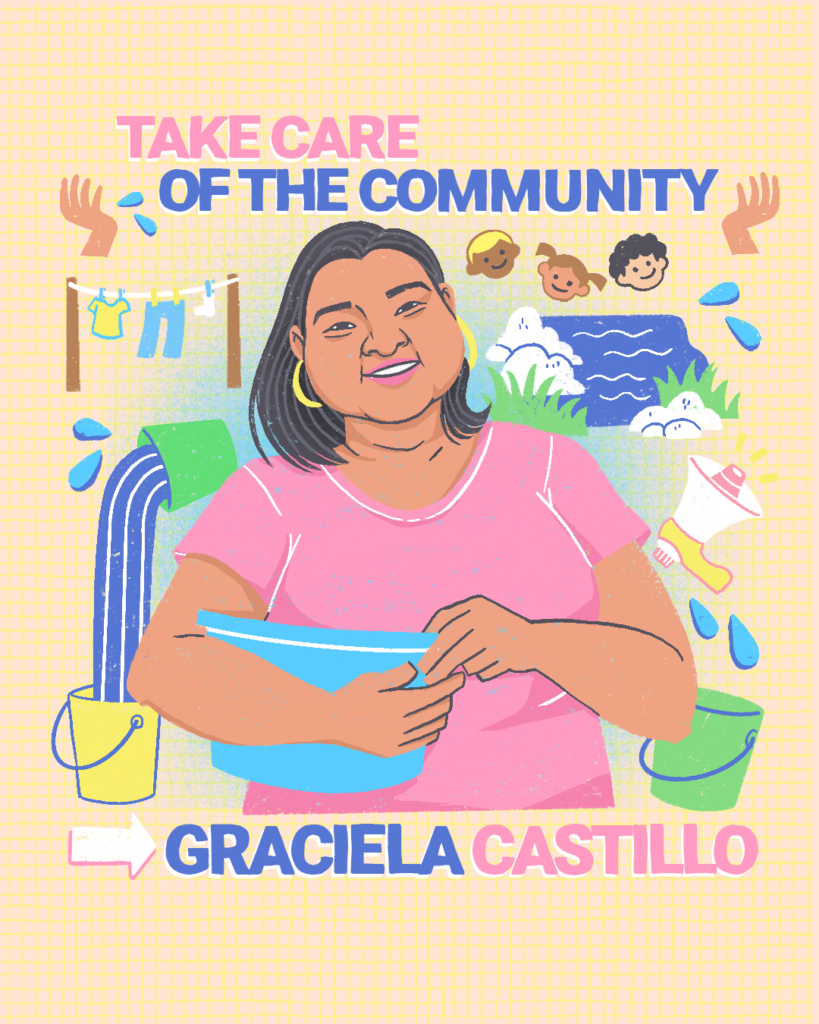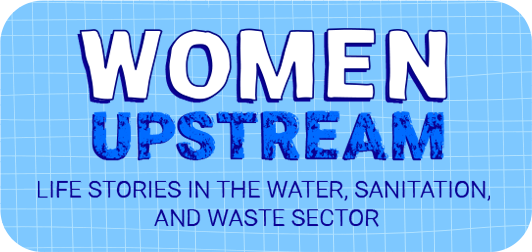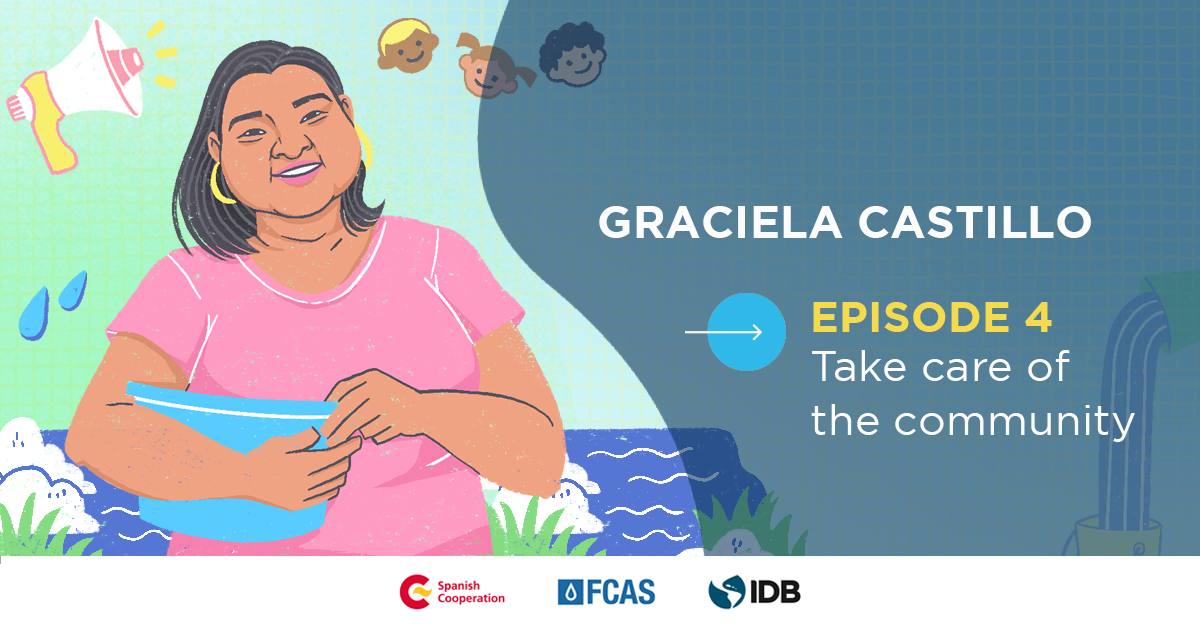As a beneficiary and former member of the Water Board of Lejamaní, Graciela was motivated by the desire to improve her neighbor’s living conditions to inform them about water projects in her community.
Written by Andrea Ortega C.
Graciela was born in “Aldea la 40”, a small community near El Progreso, in the department of Yoro, in northwestern Honduras. After the death of her father when she was only 12 years old, she moved with her family to Lejamaní, Comayagua, in the center of the country. A place she now calls home and where all of her relatives live.
As the eldest of five brothers and sisters, she dreamed of studying business administration or law. However, her family’s precarious economic situation caused her to start working after elementary school. With no access to local highschools and no funds to travel further away, studying at night was impossible since she was also responsible for helping her mother with the care of her siblings and housework.
Yet, Graciela always wanted to develop professionally and despite these obstacles, she made her way. At 18 years old, she began working in the Lejamaní Peace Court and launched her career in public service. She even came to work at the National Post Office in La Paz, where she met her husband.
Once again, she put aside her professional development to dedicate herself to raising three children. It was not easy for Graciela to stop working, but she had no other choice. Like many women in Latin America and the Caribbean, Graciela took on the upbringing of her children and all the unpaid domestic work, since her husband needed to work more hours. “Of course I wanted to work, but it was very difficult with the children,” she explains.
Access to water in her Lejamaní community presented another complication. All the water they used came from the Tepanguare River and it was rationed. Although everyone had water, the rations were often insufficient, a serious problem for large families like Graciela’s. As the population of Lejamaní grew, the river could no longer supply the entire community. Graciela and her neighbors confronted water scarcity every day and this is how water and sanitation projects began in the area.
Water: A source of empowerment
When the Lejamaní project began in 2014, Graciela was just another beneficiary. However, she wanted to get more involved to help ensure its successful implementation. Her children were older, which gave her more time to volunteer. She was first elected secretary and then treasurer of the Lejamaní Water Board.
Graciela’s motivation and her willingness to inform the community about the processes were key during the project’s execution. It was also a highly rewarding opportunity for her professional development: “I have always liked to help. I feel better when I get involved and work with people. I feel the affection from them too,” she says.

In 2017, the project was finished and it considerably improved local water and sanitation conditions. As Graciela explains: “The project changed our lives, because now we all have water. Although we don’t have it all day, it reaches the whole town. Before, we didn’t have enough water and it only reached a part of town.”
Lejamaní still faces many challenges when it comes to ensuring consistent access to water. For example, it must replace old pipes with more resistant ones, which worries the community. Although Graciela no longer serves in a leadership position on the board, the community continues to seek her guidance to understand the development of new projects. Thus, on a voluntary basis, she gives informative talks that are vital for the smooth and harmonious development of these improvements. “Sometimes there are problems with the pipes due to landslides, but one has to raise awareness that these are things of nature. They always call me and I explain to them: that it is not because the provider does not want to solve it, these things happen, and we have to detect them and work together to fix it,” she says.
Now that her children are grown, Graciela wants to go back to work. “I would love it, I really need it,” she says between laughs, admitting that she is restless and eager to take on new projects. Despite Lejamaní’s rapid population growth, its economy and job opportunities have not kept up. Today, many of Graciela’s neighbors leave the community to work in La Paz, San Pedro or even outside the country.
Graciela is still looking for a job in the public sector, but there are few vacancies. Some time ago she had the opportunity to return to work, but she gave the position to one of her sons, so that he could pay for his studies. She does not lose hope. For her, the future of Lejamaní will not only have a new sanitation system that guarantees continuous access, it will also provide more sources of employment for young people and women, who, like Graciela, want to develop professionally. Meanwhile, Graciela continues to volunteer and transform her community, informing them about development projects.
View spanish version video

Every fortnight we will upload a new profile of “Women Upstream”. Follow each story to learn more about the lives of women who have worked for their community with tenacity, perseverance and gaining leadership in spaces that used to be only for men.
The IDB together with the AECID have the common objective of providing quality water and sanitation services in rural areas of the region. Learn more about the projects carried out so far with the Cooperation Fund for Water and Sanitation (FCAS) in this publication.
To learn more about “Women Upstream” subscribe to our blog here.
Upstream Women’s Team:
Coordination: Anamaría Núñez, María Augusta Olmedo and Leticia Ortega
IDB Gender Specialists: Naiara Martínez
Content: Andrea Ortega Carreño and Paul Constance
Illustration: Verónica Alvarado and Carolina Curbelo
Audiovisual Production: Adriana Loeff


Leave a Reply